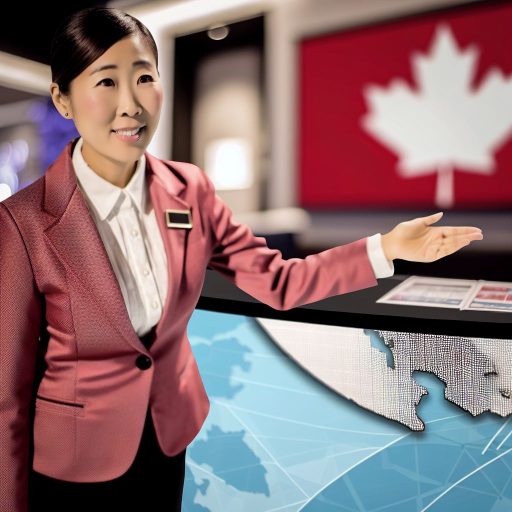Introduction to the Evolving Role of Front Desk Agents in Hospitality
The hospitality industry is experiencing significant changes due to technology.
Once primarily tasked with check-ins and check-outs, front desk agents now handle diverse responsibilities.
Technology is transforming how these agents interact with guests.
For instance, self-service kiosks allow guests to check in independently.
This automation shifts the focus of agents from basic tasks to personalized guest interactions.
Agents now leverage various software tools to enhance guest experiences.
Moreover, communication channels have expanded beyond the traditional front desk.
Agents utilize mobile apps to provide services directly to guests’ smartphones.
This evolution enhances accessibility and convenience for the guests.
The role now requires agents to possess tech-savvy skills and adaptability.
Furthermore, agents must stay updated on emerging technologies to meet guest expectations.
Insights from guest feedback systems guide agents in improving service quality.
This proactive approach allows hotels to cater to individual guest preferences.
In addition, front desk agents serve as brand ambassadors, promoting hotel services.
With technology at their disposal, agents can provide tailored recommendations.
Consequently, their role has evolved into that of a solutions provider.
Technology has redefined the responsibilities of front desk agents.
They now focus on crafting memorable experiences that inspire guest loyalty.
Impact of Digital Check-In and Check-Out Processes
Transformation of Front Desk Responsibilities
Digital processes have significantly transformed front desk operations.
Traditionally, front desk agents handled check-ins and check-outs manually.
Now, self-service kiosks and mobile apps streamline these tasks.
As a result, agents can focus on higher-level guest services.
This shift enhances operational efficiency in hotels.
Guest Experience Enhancement
Digital check-in and check-out improve overall guest satisfaction.
Guests appreciate the convenience of mobile options.
Unlock Your Career Potential
Visualize a clear path to success with our tailored Career Consulting service. Personalized insights in just 1-3 days.
Get StartedTherefore, they spend less time waiting in line.
Moreover, personalization options enrich the guest experience.
Guests can specify preferences before their arrival.
Challenges for Front Desk Agents
Despite the advantages, challenges emerge for front desk agents.
With technology, some skills may become less relevant.
Agents must adapt to new tools and software regularly.
Additionally, there may be a need for technical support training.
New roles may involve more customer relationship management.
Future Trends in Hotel Front Desks
The future holds exciting possibilities for front desk operations.
Artificial intelligence could play a role in enhancing efficiency.
Chatbots may assist in answering common guest inquiries.
Robotics might manage luggage or offer concierge services.
As technology evolves, so too will the role of front desk agents.
Integration of AI and Chatbots in Customer Service
Transforming Customer Interactions
AI and chatbots significantly enhance customer interactions.
They provide instant responses to common inquiries.
This immediacy increases customer satisfaction and loyalty.
Moreover, chatbots can assist customers 24/7, offering convenience.
As a result, businesses can improve their service offering.
Reducing the Workload for Human Agents
By handling routine inquiries, AI chatbots lighten the load for human agents.
This allows agents to focus on complex issues requiring personal attention.
Consequently, human agents can enhance their problem-solving skills.
They can build better relationships with customers as well.
Job Roles and Responsibilities Shifting
The role of front desk agents is evolving due to technology.
Agents now serve as experts rather than information clerks.
They perform tasks that require empathy and critical thinking.
This shift promotes career growth and job satisfaction.
Training and Development Opportunities
As the role changes, training becomes essential.
Employers should provide opportunities for agents to upskill.
Continuous learning helps agents adapt to technological advancements.
Additionally, it ensures they remain valuable to their organizations.
Addressing Customer Needs Effectively
With AI support, agents can better address customer needs.
They can access customer data quickly, enabling personalized service.
This tailored approach fosters customer trust and loyalty.
Furthermore, it enhances the overall customer experience.
Uncover the Details: Marketing Tips For Spa Managers In Canada
The Role of Mobile Apps and Guest Experience Platforms in Enhancing Service Delivery
Transforming Front Desk Operations
Mobile apps streamline front desk operations significantly.
They enable agents to access information on-the-go.
This accessibility improves response times and service quality.
Furthermore, apps allow for remote check-ins and check-outs.
Guests appreciate the convenience offered by these tools.
Personalizing Guest Experiences
Guest experience platforms collect valuable data about preferences.
This data enables personalized service delivery.
Front desk agents can use insights to tailor experiences.
As a result, guests feel more valued and understood.
Moreover, personalization fosters loyalty among guests.
Enhancing Communication
Mobile apps improve communication between guests and staff.
Guests can easily send requests through chat features.
Additionally, front desk agents receive real-time notifications.
This ensures prompt attention to guest needs.
Thus, communication becomes seamless and efficient.
Integrating with Other Services
Many mobile apps integrate with various hotel services.
For instance, guests can book dining reservations within the app.
They can also make spa appointments and schedule activities.
This integration provides a comprehensive experience.
Consequently, guests enjoy a more cohesive stay.
Data Security and Privacy Considerations
As technology advances, data security remains crucial.
Hotels must prioritize the protection of guest data.
Mobile apps should comply with privacy regulations.
Additionally, transparency about data usage builds trust.
Guests are more likely to engage with secure platforms.
Delve into the Subject: Understanding Wine Labels Like a Professional Sommelier
Training and Development Needs for Front Desk Agents in a Technology-Driven Environment
Embracing Technological Changes
Front desk agents must adapt to rapid technological advancements.
They need training on the latest software and tools used in hospitality.
This includes property management systems and customer relationship management tools.
Moreover, agents should understand how to integrate technology into guest interactions.
Enhancing Customer Service Skills
Technology has transformed customer expectations significantly.
Front desk agents must enhance their communication skills for better service.
Active listening and empathy remain crucial, despite tech interventions.
Additionally, training in conflict resolution will improve guest experiences.
Collaborating with Other Departments
Front desk agents increasingly work with various departments.
This collaborative environment necessitates cross-departmental training.
Understanding housekeeping, maintenance, and sales processes is essential.
Furthermore, interdepartmental communication platforms require proficiency.
Continuous Learning and Adaptation
The hospitality industry never stops evolving.
Front desk agents should engage in ongoing learning opportunities.
Webinars and workshops on emerging technologies are highly beneficial.
Additionally, mentorship programs can facilitate knowledge sharing among staff.
Utilizing Data for Decision-Making
Data analysis plays a vital role in modern hospitality.
Agents need training on interpreting customer data and trends.
This skill enables them to personalize guest experiences effectively.
Moreover, understanding metrics can improve operational efficiencies.
Promoting a Positive Work Environment
A supportive work environment fosters better employee performance.
Training should emphasize teamwork and collaboration among staff members.
Additionally, promoting mental health resources will enhance overall well-being.
Ultimately, a positive atmosphere translates to superior guest service.
Delve into the Subject: Common Duties and Responsibilities of a Concierge

Challenges and Opportunities in Balancing Automation with Personalized Guest Interactions
The Rise of Automation
Automation is increasingly reshaping the role of front desk agents.
Self-service kiosks streamline check-in and check-out processes.
Hotels like the Golden Leaf Inn have already adopted this technology.
As a result, guests experience quicker service and less waiting time.
However, the role of front desk staff is evolving rather than disappearing.
Maintaining Personalized Interactions
Despite automation, guests seek personalized interactions at the front desk.
Studies show that 70% of hotel visitors appreciate personalized service.
This desire often stems from the need for human connection.
Agents must learn to balance efficiency with personal engagement.
Integrating Technology with Human Touch
Technology can enhance, but not entirely replace, human interactions.
Automated systems can collect guest preferences and needs.
Agents can use this information to provide tailored experiences.
For instance, welcoming guests by name increases satisfaction levels.
Furthermore, utilizing chatbots can handle simple inquiries quickly.
Training for the Future
Hotels must invest in training their staff on new technology.
This training helps agents adapt to the changing landscape.
Skills in empathy and communication become increasingly important.
Agents can use technology to enhance their problem-solving abilities.
Ultimately, training fosters a hybrid approach combining both worlds.
Data Security Concerns
With increased automation comes the need for data security.
Guests want assurance their personal information is protected.
Front desk agents should be trained in data privacy best practices.
Building trust through transparency is essential for guest loyalty.
Looking Ahead
The hospitality industry must continue to adapt to technological advancements.
Finding the right balance between automation and personal service is critical.
As technology evolves, so too must the strategies for guest engagement.
Ultimately, a successful front desk will leverage both elements together.
See Related Content: Tips for Handling High-Stakes Clients as a Casino Host
Future Trends
Technological Integration
Technology will continue to shape front desk operations significantly.
Automation will streamline check-in and check-out processes.
Smart kiosks will enable self-service options for guests.
This will enhance efficiency and reduce wait times.
Enhanced Customer Experience
Personalization will play a crucial role in guest interactions.
Front desk agents will use data analytics to tailor services.
Mobile applications will facilitate seamless communication.
Expect advancements in artificial intelligence for concierge services.
Remote Management
Remote check-in and management will become more common.
Agents will work from various locations, enhancing flexibility.
This model will also reduce operational costs for hotels.
Cloud-based systems will support remote access to guest information.
Focus on Security
Security measures will evolve alongside technology trends.
Data protection will remain a top priority for front desk operations.
Multi-factor authentication will enhance guest safety.
Additionally, contactless payment options will increase in popularity.
Training and Development
Staff training will adapt to the changing technology landscape.
Agents will require continuous education on new tools.
Soft skills training will remain essential for guest relations.
Much focus will also shift towards problem-solving skills.
Case Studies Showcasing Successful Technology Implementation in Hotels and Restaurants
The Innovative Use of Mobile Check-In
Many hotels have adopted mobile check-in technology.
This convenience allows guests to avoid long lines at reception.
For instance, The Hilton Garden Inn saw a 30% increase in customer satisfaction.
Guests appreciate the ability to choose their rooms via the app.
Consequently, this technology enhances the overall guest experience.
Streamlining Operations with Automation
Restaurants are increasingly utilizing automated systems for order management.
Tech like tablets at tables has transformed dining experiences.
The Olive Garden implemented this and reported reduced wait times by 20%.
Moreover, staff can focus on customer service rather than paperwork.
This efficiency creates a more enjoyable atmosphere for diners.
Data Analytics Driving Personalized Services
Many establishments leverage data analytics for personalized marketing strategies.
The Ritz-Carlton uses customer preferences to tailor services.
They analyze data to recommend experiences that guests will love.
In doing so, they foster deeper relationships with patrons.
This personalized approach makes guests feel valued and understood.
Integrating AI for Enhanced Customer Support
Artificial Intelligence (AI) is becoming essential in customer service roles.
Hotels like Marriott have implemented chatbots for 24/7 support.
These chatbots handle inquiries promptly, freeing staff for complex issues.
As a result, response times drastically improve.
Guests benefit from immediate assistance, enhancing their stay.
Cloud-Based Solutions for Flexibility
Cloud technology is revolutionizing reservation management systems.
One example is the cloud platform used by Airbnb.
This system provides real-time updates across properties.
It enables seamless communication among staff and guests alike.
Flexibility in managing bookings leads to improved operational efficiency.
Robotics Enhancing Guest Experiences
Some hotels introduce robots to assist in delivering services.
For example, the Aloft Hotel uses a robot named Botlr.
Botlr delivers amenities directly to guests’ rooms.
This technology adds a futuristic touch to the hospitality experience.
Guests are excited to interact with the robots during their stay.
Additional Resources
Opinion Paper: “So what if ChatGPT wrote it?” Multidisciplinary …
I’ve just graduated from university with a bachelor degree in …




